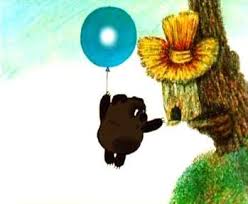Recording that A. A. Milne published "Winnie the Pooh" in the year of the General Strike (1926) has made me think of a couple of books that make use of a similar contrast between Eden-like tranquility, and large-scale strife. One is
Brideshead Revisited (1945)
, in which Charles and some chums embark on a spot of blacklegging:
We were joined by a Belgian Futurist, who lived under the, I think, assumed name of Jean de Brissac la Motte, and claimed the right to bear arms in any battle anywhere against the lower classes.
The other is
The Vermilion Box (1916), by E. V. Lucas. Lucas introduced Milne to the illustrator Ernest Shepard, who gave us the famous image of Winnie the Pooh that not even Disney dared to mess with much. Otherwise, Lucas was a veritable Vernon Coleman of his day, knocking out around 3 books per year on every subject under the sun (
Swollen Headed William,
If Dogs Could Write and
The Hausfrau Rampant to name but 3)
. I read
The Vermilion Box earlier this year for the simple reason that it contains the first known use in print of the phrase "Donkey's Years" (though it's actually "Donkey's Ears" there).
It's in the form of a collection of letters sent within several families who have members serving in the war, and I didn't actually realise it was fiction until 4 or 5 letters in. It's of little literary merit, and though it tries to embrace all walks of life it only succeeds from lower-middle class to upper-middle class. But it's interesting in being pitched knowingly, inoffensively and saleably in between the two views of WWI that we get today: the jingoism and the horror.
Although Disney were obliged to follow Shepard, I think I prefer the Soviet Russian bootleg,
Vinni Puh.


